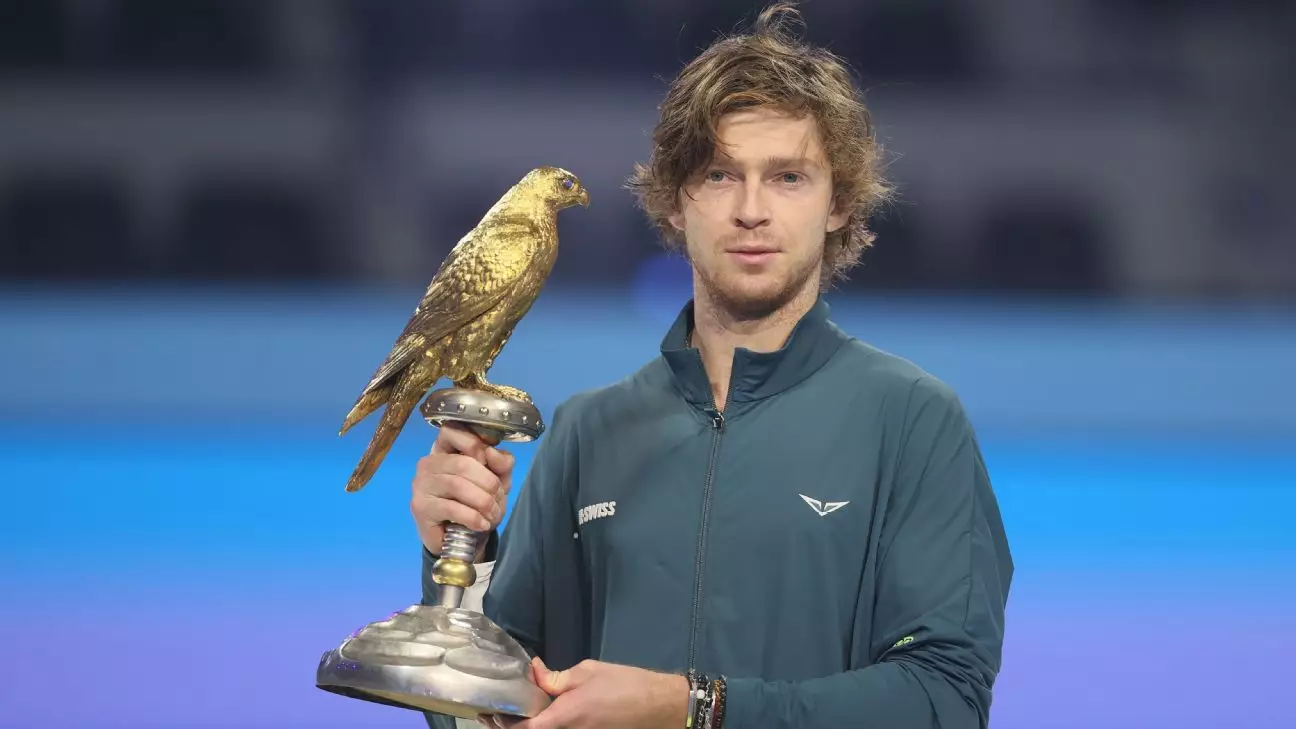In a riveting final match at the Qatar Open, Andrey Rublev showcased exceptional mental strength to secure his second title in Doha, defeating Jack Draper with a score of 7-5, 5-7, 6-1. This victory marked Rublev’s seventeenth career title and his continued rise in the competitive world of tennis. It’s commendable how Rublev emphasized the psychological aspect of his game, indicating that his mental approach was crucial to navigating the pressures of the match.
Rublev’s performance, particularly in the face of adversity, highlights the importance of mental resilience in sports. He articulated that he maintained focus and control even when faced with frustration, a common hurdle athletes encounter during tight matches. “I was really good mentally and didn’t let frustrations get over me,” he said. This declaration underscores a shift in athletic performance paradigms, where mental conditioning and emotional regulation are becoming as vital as physical training.
Endurance Through Three-Set Battles
Rublev’s journey through the tournament was marked by three consecutive three-set matches against formidable opponents, including Alex de Minaur and Felix Auger-Aliassime. The physical toll of such encounters can significantly challenge an athlete’s stamina and mental clarity. However, Rublev managed to rally his energies after dropping the second set, showcasing both his resilience and adaptability. “When I lost the second set, I let it go and started to play more freely,” he reflected, emphasizing the importance of letting go of mistakes to regain momentum.
This philosophy of acceptance, especially in high-stakes situations, is often pivotal for athletes, as it can dictate their ability to perform under pressure. By shifting his mindset and focusing on the present moment, Rublev effectively demonstrated that success in tennis—and sports in general—often hinges not just on skill but on one’s mental approach to challenges.
Future Outlook for Jack Draper
While Rublev basked in the glory of his victory, it’s equally intriguing to consider the trajectory of his opponent, Jack Draper. With this match, Draper has established himself firmly in the upper echelons of tennis, set to attain a career-high ranking of No. 12. His competitive spirit and determination were evident throughout the tournament, revealing his potential for future success. Draper’s own words reflect a growth mindset as he stated, “We played some tough matches this week, and in the third set, he was just a bit too strong for me.”
Draper’s ability to reflect positively on his progress after a tough defeat indicates a maturity that will serve him well as he continues to develop his game.
The Qatar Open final served not only as a showcase of athletic talent but also as an enriching reminder of the profound role mental strength plays in the sport. Andrey Rublev’s success illustrates that victories are often won through the mind as much as through physical skill. As both players prepare for future challenges on the ATP tour, their experiences in Doha will undoubtedly shape their approach, reinforcing the notion that mental resilience can be the determining factor in the high-stakes environment of professional tennis.

